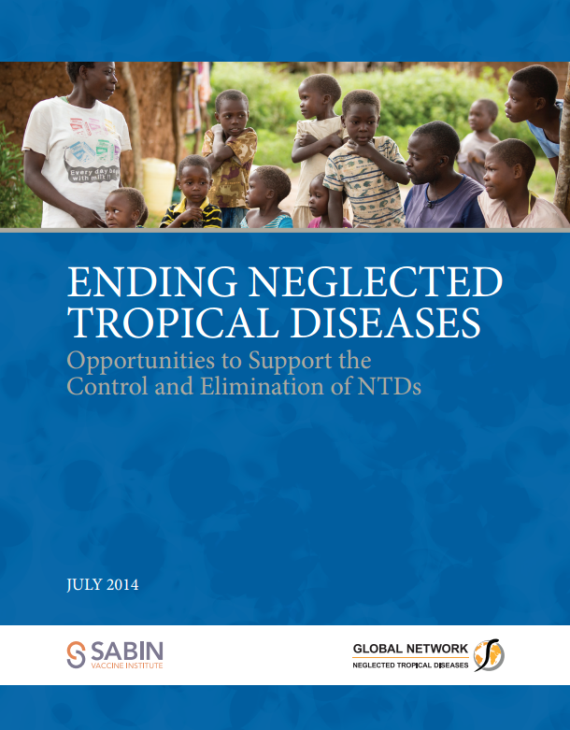
As I drove home from the Baltimore-Washington International Airport earlier this month, I could not help but notice the electronic bulletins on the I-95 and Capitol Beltway that flashed “D.C. Event Aug 4-6, expect delays.” The event, of course, referred to the first ever U.S.-Africa Leaders Summit, while the delays referred to the inevitable abundance of motorcades.
During the span of those three days, nearly 50 African heads of state gathered in Washington, D.C. for discussions with President Obama, administration officials and business leaders on a range of topics under the theme of “Investing in the Next Generation.” While we expected many roadblocks to be put up around D.C. that week, we were hoping that one major development roadblock would be pulled down during the Summit: neglected tropical diseases (NTDs).
These parasitic and bacterial infections affect 1.4 billion people living in poor and marginalized communities around the world, particularly in agricultural populations. Once infected, poor communities remain impoverished due to resulting physical and mental disabilities, including blindness, anemia, immobility, delayed cognitive development and social stigma. NTDs leave children too sick to attend school and keep adults from working. And because NTDs destroy vital social and economic capital, controlling and eliminating these diseases must be an essential element of the emerging new Africa that is increasingly seeking growth through business opportunities.
Regretfully, NTDs and the roadblock they raise against productivity and prosperity were not prioritized at the Summit (outside of a mention in USAID’s press release about its major initiatives). While we were happy to see impressive new private-sector commitments to electricity and food security, particularly to the New Alliance for Food Security and Nutrition, the omission of NTDs from those conversations and commitments signaled a missed opportunity for US-Africa relations.
For example, over the past two years, private companies, philanthropists and governments have committed an astounding $10 billion for agriculture investments in Africa through the New Alliance for Food Security and Nutrition. This initiative was launched in 2012 to build on the commitments made by G7/8 leaders to achieve sustained and inclusive agricultural growth, food security and good nutrition in the region over the next ten years.
While the New Alliance (and many other initiatives) is undeniably doing great work at strengthening the resilience of agricultural communities in Africa, fighting NTDs is an immediate and cost-effective opportunity that is available now to expand and strengthen these efforts. By working to reduce the incidence of NTDs in Africa, partners could positively impact the New Alliance’s same target areas, and more importantly, the poorest populations most affected by poor nutrition and food security.
Because Africa’s core agricultural workforce — smallholder subsistence farmers — are disproportionately affected by NTDs, the billions of dollars in agricultural investments made by governments and the private sector could be undermined if NTD control and elimination is not prioritized. In fact, smallholder farmers will be less productive and derive fewer benefits from New Alliance funding if NTDs are not addressed.
NTD infections also prevent people from enjoying the benefits of having access to a diverse, nutrient-rich diet. Roundworms, for example, compete with children for key nutrients and vitamins in order to grow. As a result, roundworm infections and other NTDs have serious consequences on a child’s growth and development, leading to micronutrient deficiencies, stunting and overall poor nutritional status.
Simply put, the New Alliance’s goals of achieving food security and good nutrition in Africa cannot be fully and sustainably achieved without addressing NTDs.
Many incredible (and highly cost-effective) victories have been won in the fight against NTDs, but greater investments are still needed to help smallholder farmers overcome the first basic roadblock to doing good business. Tackling NTDs truly helps communities invest in the next generation by offering them the opportunity to participate in their own sustainable solutions to poverty.
Watch for more information from the Global Network on the important linkages between NTDs and nutrition in the coming months!





